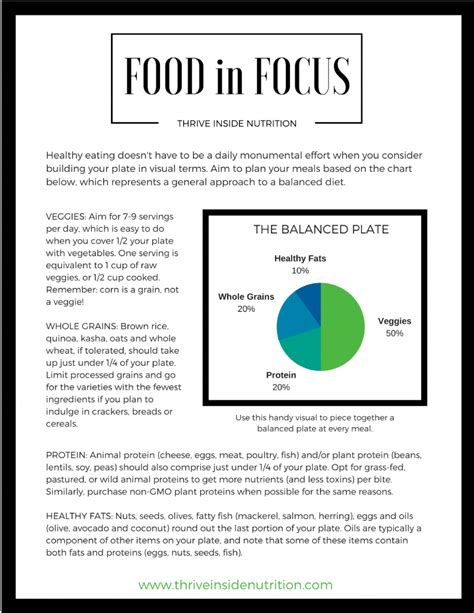Optimize diet for sustained energy & cognitive performance?

Fueling Your Brain and Body: The Dietary Connection
In our demanding modern world, the quest for sustained energy and peak cognitive performance is more critical than ever. While factors like sleep and stress management play a role, the foundation for optimal brain function and unwavering energy levels lies squarely in our daily diet. What we eat directly impacts our mood, focus, memory, and physical stamina, transforming our potential from merely surviving to truly thriving.
Understanding the intricate relationship between nutrition and neurobiology is the first step toward unlocking your full potential. This article will guide you through the key dietary principles and specific foods that can help you maintain sharp mental acuity and consistent energy throughout your day, avoiding the dreaded afternoon slump.

The Pillars of a Performance-Enhancing Diet
Balanced Macronutrients for Stability
The triumvirate of macronutrients – carbohydrates, proteins, and fats – each plays a distinct role in energy and cognition. The key is balance and choosing the right types:
- Complex Carbohydrates: Unlike simple sugars that lead to energy spikes and crashes, complex carbohydrates (found in whole grains, fruits, and vegetables) provide a steady release of glucose, your brain’s primary fuel. This ensures sustained energy without the roller-coaster effect.
- Lean Proteins: Essential for building and repairing tissues, proteins also supply amino acids, the building blocks for neurotransmitters like dopamine and serotonin, which are crucial for mood, focus, and alertness. Include sources like lean meats, poultry, fish, legumes, and nuts.
- Healthy Fats: Far from being the enemy, healthy fats – particularly omega-3 fatty acids – are vital for brain health. They support brain structure, reduce inflammation, and enhance communication between brain cells. Think avocados, nuts, seeds, and fatty fish.
Micronutrients: The Unsung Heroes
Vitamins and minerals, though needed in smaller quantities, are indispensable for countless biochemical reactions in the body and brain. B vitamins (for energy metabolism), Vitamin D (for mood and cognition), magnesium (for nerve function), and iron (for oxygen transport) are just a few examples whose deficiencies can severely impair both physical and mental performance.

Hydration: The Often-Overlooked Foundation
Even mild dehydration can significantly impair cognitive function, leading to decreased concentration, poor memory, and increased fatigue. Water is crucial for nutrient transport, waste removal, and maintaining the electrical activity of the brain. Aim for at least 8 glasses of water daily, more if you’re active or in a warm climate.
Foods for Peak Brain Power and Sustained Energy
- Fatty Fish (Salmon, Mackerel): Rich in Omega-3s (DHA and EPA) crucial for brain structure and function.
- Berries (Blueberries, Strawberries): Packed with antioxidants that help protect brain cells from damage and improve memory.
- Nuts and Seeds (Walnuts, Chia Seeds): Excellent sources of healthy fats, protein, fiber, and vitamin E, beneficial for brain health.
- Leafy Green Vegetables (Spinach, Kale): High in vitamins K, Lutein, Folate, and Beta-carotene, linked to slower cognitive decline.
- Whole Grains (Oats, Brown Rice): Provide a steady supply of glucose, preventing energy crashes.
- Eggs: A great source of choline, important for memory and brain development.
- Avocados: Contain monounsaturated fats that promote healthy blood flow to the brain.

Practical Strategies for Dietary Optimization
Mindful Meal Timing and Frequency
Instead of three large meals, consider smaller, more frequent meals and snacks that combine protein, healthy fats, and complex carbohydrates. This can help stabilize blood sugar levels and provide a continuous supply of energy to your brain and body.
Minimize Processed Foods and Added Sugars
These offer little nutritional value and often lead to energy spikes followed by dramatic crashes. They contribute to inflammation, which can negatively impact brain health over time. Focus on whole, unprocessed ingredients.
Prioritize Gut Health
The gut-brain axis is a rapidly expanding area of research. A healthy gut microbiome, fostered by a diet rich in fiber and fermented foods, can positively influence mood and cognitive function. Include probiotics and prebiotics in your diet.

Building Your Optimal Diet
Transitioning to a diet that supports sustained energy and cognitive performance is a journey, not a destination. It involves mindful choices, consistency, and listening to your body. Start by making small, sustainable changes. Swap sugary cereals for oatmeal, replace processed snacks with fruits and nuts, and ensure every meal includes a source of lean protein and healthy fats.
Consulting with a nutritionist or dietitian can provide personalized guidance tailored to your specific needs and goals, helping you fine-tune your approach for maximum benefit. Remember, the food you choose to eat today is directly fueling the thoughts you’ll have and the energy you’ll exert tomorrow.

Conclusion
Optimizing your diet for sustained energy and cognitive performance is one of the most powerful investments you can make in your overall well-being. By focusing on whole, nutrient-dense foods, balancing your macronutrients, staying hydrated, and understanding the role of key micronutrients, you can unlock a higher level of focus, clarity, and vitality. Fuel your body and brain wisely, and experience the transformative power of good nutrition.









